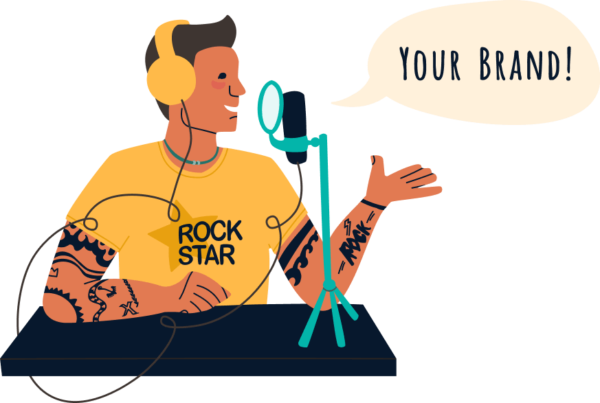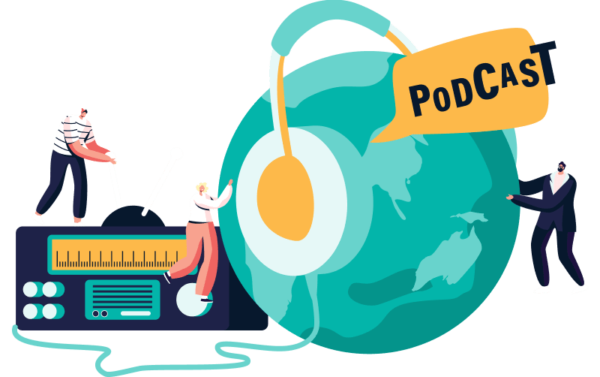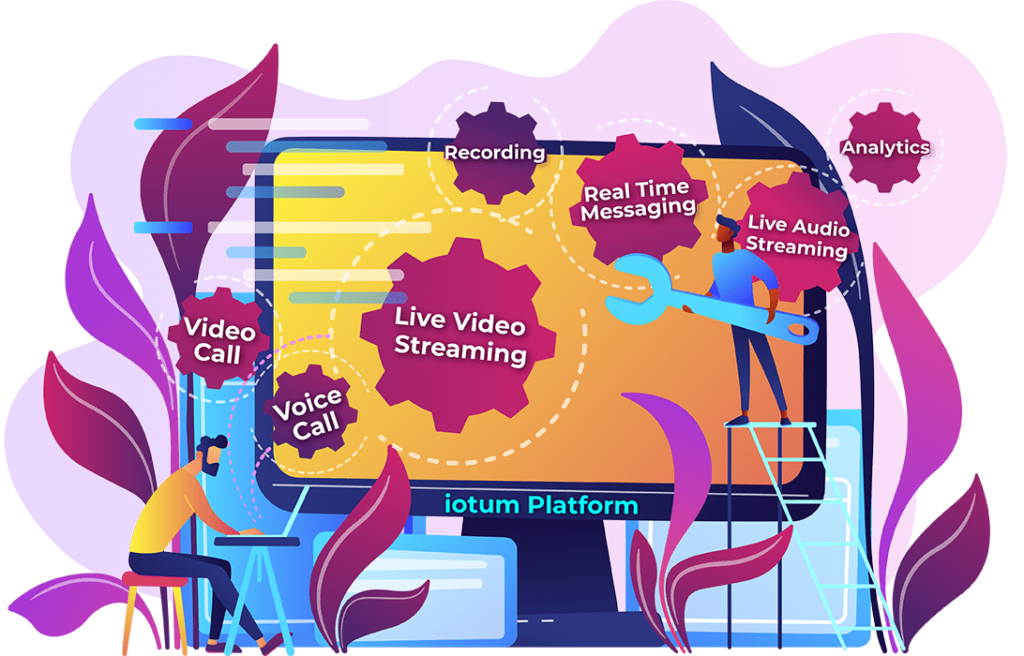Creating your brand’s overall marketing strategy is like putting together pieces of a puzzle. It involves creative thinking, taking risks and plenty of trials until you can get the formula just right.
In the age of information, brands have access to a full-blown buffet of tactics at their fingertips—from podcast marketing to experiential events. However, going full throttle and taking advantage of all of them at once isn’t always the wisest strategy.
Audiences and consumers are smarter and savvier than ever before. They can tell when a brand isn’t being authentic to its mission, values and voice, so throwing every marketing tactic at the wall and seeing what sticks probably won’t get you the best results.
You don’t have to use every trick in the book to tell your brand’s story in an effective and engaging way. So how do you know which tactics are best for your brand?
When it comes to podcasting, there’s really no downside to starting a podcast as an extension of your brand. While other tactics like promotional events or advertising campaigns may cost you thousands of dollars, podcasting is technically free to start (more on this later), so you have nothing to lose if you want to give it a go.
If you’re still on the fence about starting a podcast, here are a few questions to consider that may help solidify your decision:
Do you have something to say?
In case you haven’t heard, podcasting is an auditory medium used to tell stories, start conversations and discuss anything from baking bread to murder mysteries. It may seem obvious, but the best reason to start a podcast is because you have a strong message you really want to get across to listeners.
Since podcasts have become so wildly popular, some brands have been hopping on the bandwagon before thinking about their core message and why they want to start a podcast in the first place. Everyone has a story to tell, but it’s important to be strategic about the particular vehicles you choose to spin your brand’s narrative.
You wouldn’t stand up and yell “listen up, everyone!” at the dinner table if you had nothing important to say, so why would you start a podcast without a strong overarching message to convey? Before launching a podcast as a marketing tactic, make sure you’ve done the work to determine what it is you’re trying to say through your podcast and why.
Who are you talking to?
 Once you’ve established the mission and messaging for your podcast, take some time to consider your ideal audience base. If you’ve already determined your overall target audience for your brand or business, then this should be a breeze.
Once you’ve established the mission and messaging for your podcast, take some time to consider your ideal audience base. If you’ve already determined your overall target audience for your brand or business, then this should be a breeze.
However, you may want to consider broadening your audience so you can reach more potential listeners and eventually convert them to clients or customers. Consider which demographics you risk alienating with your content—for example, a podcast about vegan living may turn away meat-eating listeners.
Whatever you decide, make sure you’re intentional about your choices and you know the kind of listeners you’re trying to reach as your end goal. This will help the content creation process flow much more organically because you’ll be writing each episode with a target audience in mind.
Is a podcast the possible best use of your resources?
While podcasting is technically a free medium, there are still costs associated with getting one off the ground including hiring freelancers, tech equipment and sound design. But even without considering finances, you’re still going to be allocating a significant chunk of time to starting a podcast, and we all know time is a valuable currency today.
With this in mind, it’s important to consider whether or not starting a podcast will be worth it for you or your brand. As we’ve established, you can’t feasibly undertake every marketing tactic in existence at the same time, so you need to be deliberate with your choices and only execute on the ones that make the most sense for your brand, while putting a pin in the ideas you’re less excited about.
Will listeners be interested in your topic?
Whether your business area of focus is fashion or health food, you really can start a podcast on just about anything, as long as you take the right approach. If you’re wondering whether a show about your brand topic has the potential to be a big hit, see if it falls into any of the more popular podcast topics in the list below:
- True crime
- News
- Sports
- Food
- Health
- Music
- Tech
- Comedy
- Business
- Art
Even if your podcast idea doesn’t fall into any of the above categories, there’s no reason why it couldn’t make a big splash and gain a solid following overtime. No matter how niche or out there your brand topic is, if you’re interested in it, chances are there are others who will be interested, too and happily join your community.
For inspiration, check out these examples of podcasts nailing their niche:
- Commerce Chefs. Discussing all things ecommerce, this podcast is a great example of a niche topic done right.
- C Suite. Covering cyber literacy for the everyday person, this podcast uses an engaging format to spice up their topic and draw in listeners.
- Mr. Open Banking. This podcast focuses on the emerging world of open banking, breaking lofty concepts down into bite-sized bits for listeners.
 The bottom line
The bottom line
A successful podcast is all about the execution and the passion you put into it, so ultimately, let your enthusiasm be your guiding force. Where there’s a will there’s a way, so a strong desire to be a podcaster will carry you through the trials and tribulations you encounter along the way.
Any marketing tactic you undertake with genuine excitement and authenticity behind it will almost certainly yield success, so if you’ve been itching to get out your microphone and speak your truth, this is your sign to go for it!
About the Author
Mackenzie Patterson is Quill Inc.’s digital content strategist.

